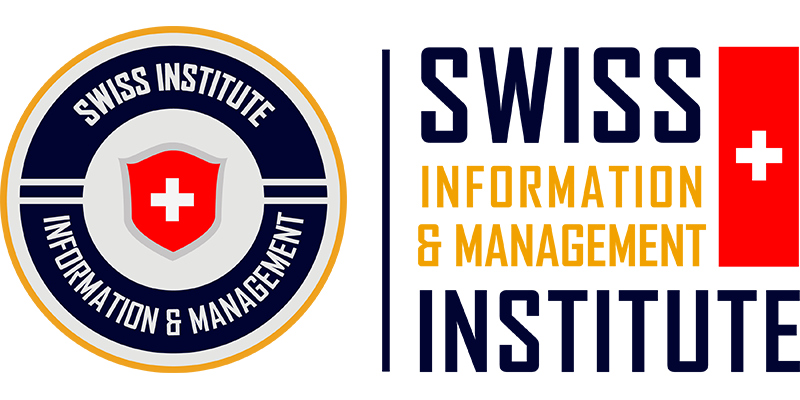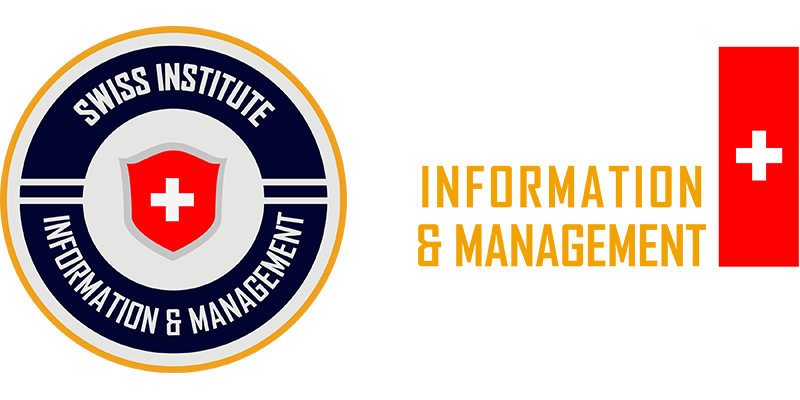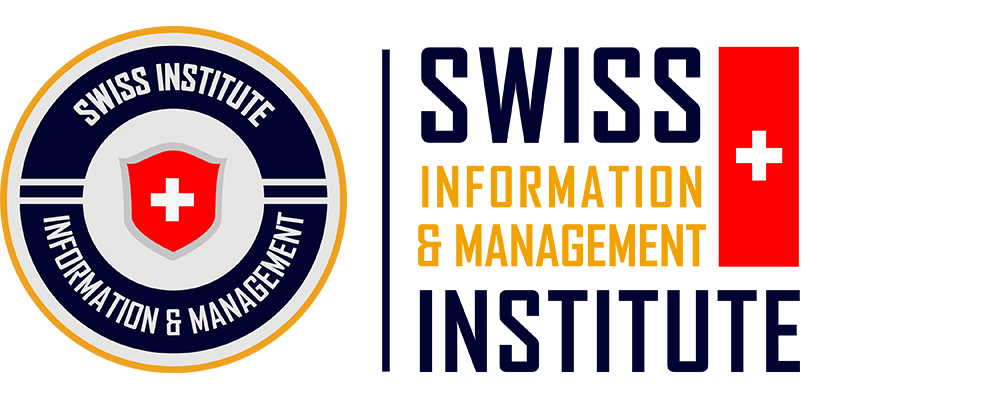Foundation Program in Business Management
The Foundation Program in Business Management (Level 3 Diploma in Business Management) is designed to enhance core business management skills and provide a career path for learners. This UK-recognized qualification equips learners with the essential skills needed by organizations worldwide. It focuses on developing key management competencies in areas such as leadership, strategic planning, and operations, preparing aspiring and current junior managers for increased responsibilities and future career growth.
Qualifications & Professional Recognition within a Foundation Program in Business Management:
- Level 3 Swiss Diploma in Business Management from Swiss Information and Management Institute
- Level 3 Diploma in Business Management from the Ofqual UK.Gov Awarding Body Qualifi (603/1102/2)
- 06 Foundation Professional Certificate
Along with globally recognized qualification, the SIMI Swiss Foundation Level program understands what students need:
- Fully Accredited & Recognized
- The Swiss Student Card confirms official Swiss student status and eligibility with SIMI Swiss
- Certified & Micro-Credentials Included
- Multiple Qualifications from SIMI & Prestigious Universities
- Flexible Learning Model
- Academic Support While Studying
- Tuition fee support provided by Swiss EduFund
International Accreditation
SIMI is accredited at both the institutional and programmatic levels by ASIC, HEAD, ISO 21001:2018, OTHM, and Qualifi, which is recognized by Ofqual.
Multi Qualification with Qualifi
The program is widely recognized by the business community and partners, helping to optimize the use of the diploma after graduation.
06 Professional Certified
Learners can get 06 Professional Certified aligned with the European occupational framework, optimizing their skills upon graduation.
Academic & Research Support
The academic, research and language support system helps students overcome challenges so they can focus solely on excelling in their studies.
Learn and Earn
Program Details
How It’s Structured
- Mode of Study:
- On campus mode in Switzerland: Applicable to European students only.
- Fully Online mode: The program is designed with an automated training model, allowing students to study anywhere using a proprietary pedagogical approach.
- Module Structure: Each module includes 40 hours of guided learning and 30-50 hours of optional materials (exercises, readings, digital resources, and self-assessment tasks).
- Assignments: Submit 06 online assignments (2,000–3,000 words each).
- Dual Diplomas: Earn a diploma from the Swiss Information and Management Institute (SIMI) and a Qualifi diploma accredited by the Ofqual UK Government.
- Career & Academic Pathways: Aligns with Level 3 EQF career pathways in Business Management and can be topped up to a bachelor’s degree at universities across Europe and the UK.
- Professional Certification: Accumulate three Level 3 Professional Certificates to demonstrate competency in the workplace.
Course Content
Mandatory Modules:
1. An Introduction to Marketing (BM 303): 10 UK Credits/ 5 ECTS Credits
- Learning key marketing concepts like the marketing mix and planning.
- Understanding the role of marketing research and its contribution to business success.
2. An introduction to the Business Environment (BM 301): 10 UK Credits/ 5 ECTS Credits
- How businesses are organized to achieve their targets, including their structure, strategy, and operations.
- How economic, political, legal, and social environments impact businesses, providing learners with a comprehensive understanding of different types of businesses and their functions.
- How external factors influence business decisions and performance, equipping learners with the knowledge to analyze and navigate the dynamic business landscape.
3. Business Communication (BM 305): 10 UK Credits/ 5 ECTS Credits
- Understanding business information and communication methods.
- Developing, analyzing, and evaluating different business communication
4. Business Resources (BM 302): 10 UK Credits/ 5 ECTS Credits
- Understanding how human, physical, technological, and financial resources are managed.
- Learning how human resources are managed and the skills required.
- Accessing financial resources and interpreting financial statements.
5. Human Resource Management (BM 304): 10 UK Credits/ 5 ECTS Credits
- Understanding human capital and the importance of managing it.
- Learning about employee motivation, performance management, and commitment.
6. Recruitment and selection in business (BM 307): 10 UK Credits/ 5 ECTS Credits
- Understand the recruitment and selection process, including document preparation, legal considerations, and the role of the HR department in supporting business objectives.
Assignments:
- Complete 6 written assignments (2,000–3,000 words each) based on the module titles.
"These courses are accredited and mapped to National Occupational Standards. They can also be accumulated towards earning a Level 3 Award from SIMI Swiss if taken independently. Please click on each module name to view details on Learning Outcomes, Topics, and Suggested Readings."
Method of Learning
1. Off-Campus Mode
The program is a combination between Live Classes with local tutors (where applicable) for a hybrid learning experience.
- Offering interactive, real-time engagement with instructors.
- Local tutors provide additional guidance to help learners apply theoretical concepts to practical scenarios.
- Ideal for busy professionals seeking flexibility with personalized support.
Learn more about overview of enrolling in online classes at SIMI Swiss [Video HERE]
Learn more about the Effective of SIMI Pedagogy [Video HERE]
2. Fully Online Model
The program is implemented using a combined automated training model that includes:
- Optimized Online Learning System: Designed to enhance the self-study process.
- Bite-Sized Lectures: Lessons are structured in short, manageable modules, enabling students to grasp the content immediately after completing each module.
- Comprehensive Support System: Provides students with the necessary tools and support to efficiently fulfill course requirements.
Learn more about how to use the automated training model at SIMI Swiss [Video HERE]
Entry Requirements
Admission Requirements for Level 3 Foundation Program:
- Age Requirement: Applicants must be at least 16 years old.
- Education: Completion of full secondary education is required.
- English Language Proficiency:
- Applicants must demonstrate English language skills equivalent to:
- IELTS: Overall score of 5.5, with Reading and Writing at 5.5.
- CEFR: Level B2.
- Pearson Test of English Academic (PTE Academic): Score of 51.
- Applicants must demonstrate English language skills equivalent to:
Academic Support
We understand that pursuing an accredited postgraduate program can be both exciting and challenging, especially for busy adult learners. To help you overcome these challenges, we’ve created the SIMI Swiss Supporting Systems, designed to guide you through any difficulties during your studies.
For a full overview of the support available, be sure to watch our informative videos, offering help at every stage of your academic journey.
Earning & Learning Progression
Earn Dual Qualifications from UK & Switzerland
Upon completing program, students will receive:
1. Level 3 Swiss Diploma in Business Management from Swiss Information and Management Institute
- Sample certificate of Level 3 Swiss Diploma in Business Management:
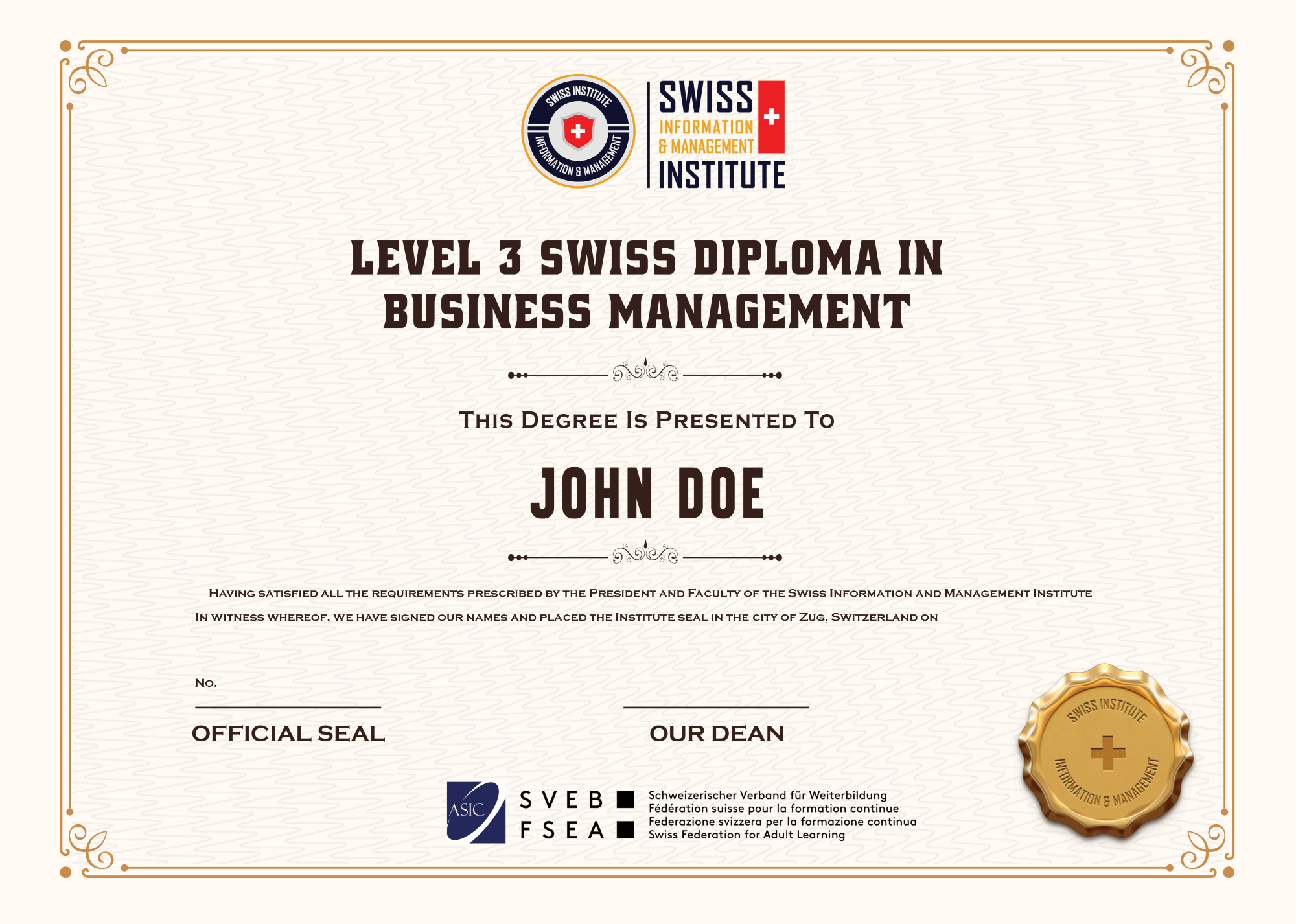
2. Level 3 Foundation Diploma in Business Management from the Ofqual UK.Gov Awarding Body Qualifi - Qualification Number: 603/1102/2
- Sample Certificate of Qualifi Level 3 Foundation Diploma in Business Management:
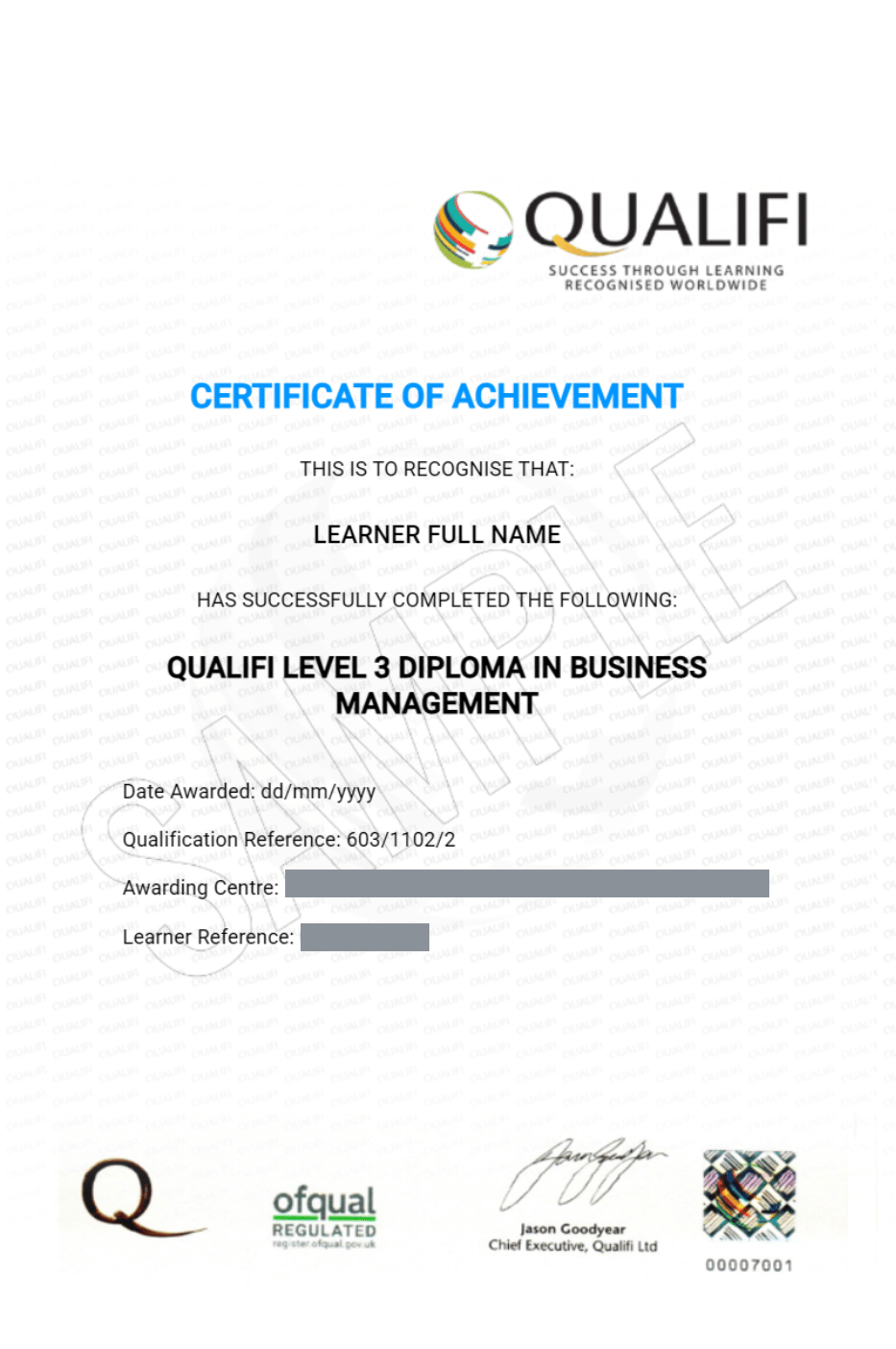
- Sample Transcript of Qualifi Level 3 Foundation Diploma in Business Management:
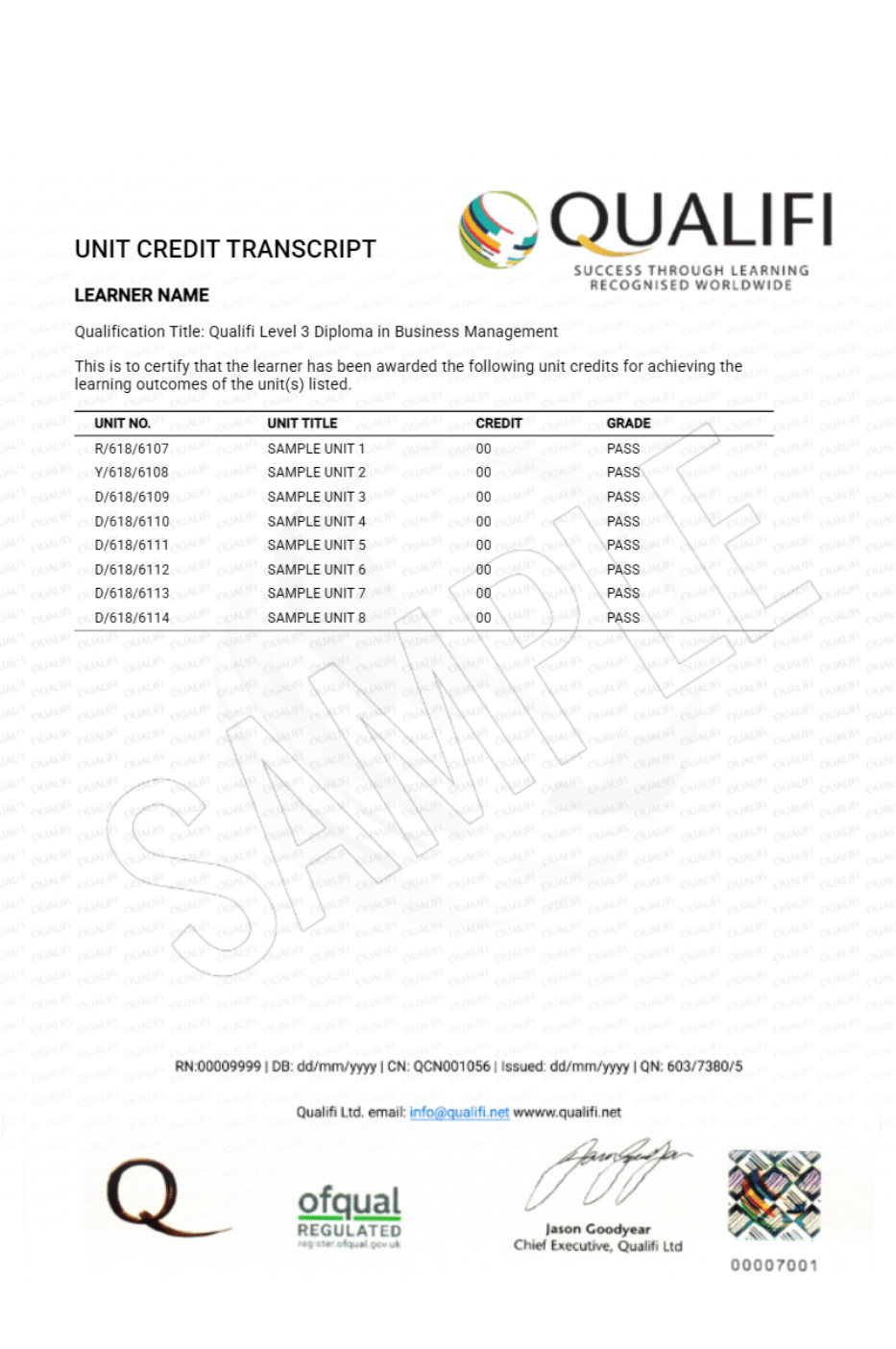
Gain competencies
The program equips learners with key competencies, including:
- Accounting Fundamentals: Mastery of basic principles, bookkeeping, and financial statements.
- Financial Analysis: Skills to analyze and interpret financial data.
- Budgeting and Taxation: Proficiency in cost management, budgeting, and basic tax computation.
- Business Communication: Clear and professional financial reporting.
- Ethical Awareness: Understanding ethical practices in accounting.
- Technological Skills: Familiarity with accounting software and tools.
- Problem-Solving: Analytical skills for resolving financial issues.
- Higher Studies Preparation: A foundation for advanced qualifications like ACCA or CIMA.
Career Progression
A career in business management offers diverse opportunities in operations, marketing, human resources, and leadership. As businesses grow and adapt, the demand for skilled managers remains high, providing stability and significant growth potential in an ever-evolving field.
"The program aligns with the Level 3 EQF competency framework, equivalent to 60 UK credits or 30 ECTS credits. It is recognized in most countries and territories, ensuring global acceptance and immediate employability."
Completing the Level 3 Diploma in Business Management program qualifies learners for various entry-level positions in business management, such as:
- Business Assistant: Supports daily business operations by managing schedules, coordinating tasks, and assisting with administrative functions.
- Office Manager: Oversees office operations, manages office supplies, handles administrative duties, and ensures a smooth workflow.
- Operations Coordinator: Assists in planning and coordinating operational processes, ensuring efficiency in the business's day-to-day activities.
- Project Assistant: Supports project managers by organizing tasks, tracking project progress, and ensuring deadlines are met.
- Sales Manager: Oversees sales activities, manages customer relationships, and works to meet sales targets.
- Marketing Coordinator: Assists with planning and executing marketing campaigns, handling communications, and tracking marketing performance.
- Administrative Manager: Manages office administration, organizes workflows, and supervises administrative staff to ensure the smooth functioning of the organization.
- Customer Service Supervisor: Leads customer service teams, ensures high-quality service, and resolves customer issues to maintain satisfaction.
University progression
Upon completing this course, students can choose to pursue a Level 4/5 Diploma at the Swiss Information and Management Institute (SIMI). Additionally, students will have the opportunity to apply for admission to a full BA degree program at a range of universities in the EU and the UK.
Supplemental resources and Level 3 Pro-Certified
1. Supply 06 courses mapped to National Occupational Standards
Beyond the comprehensive level 3 diploma in Business Management curriculum, students gain access to an additional 06 professional modules covering a wide range of specializations. This expanded knowledge base enables students to build on their classroom learning and directly apply it to their specific job roles and needs, offering valuable tools for professional growth.
Unlike other study materials, this interactive and exclusive set of resources, developed by SIMI Swiss, is specifically designed for self-study. The knowledge system, aligned with the National Occupational Standard, is divided into 06 knowledge groups, each further broken down into bite-sized lessons. This approach allows students to absorb content quickly and effectively, even when away from their computer or phone.
The 06 interactive courses that enhance knowledge and automatically accumulate 06 separate Level 3 Pro Certifications include:
- (Level 3) An introduction to marketing
- (Level 3) An introduction to the business environment
- (Level 3) Business communication
- (Level 3) Business resources
- (Level 3) Human resource management
- (Level 3) Recruitment and selection in business Maintaining financial records
2. Supply 06 webinars mapped to National Occupational Standards
In addition to comprehensive lessons with built-in interactive activities and an exclusive self-study pedagogy, each knowledge module aligned with the National Occupational Standard includes instructional videos (webinars). SIMI Swiss students are provided with 06 video webinars corresponding to the 06 interactive modules, ensuring a well-rounded and complete learning experience.
The 06 video webinars include:
- Webinar - An introduction to marketing: Understand marketing fundamentals and its role in business success.
- Webinar - An introduction to the business environment: Learn how businesses operate and respond to external factors.
- Webinar -Business communication: Master methods for effective internal and external business communication.
- Webinar -Business resources: Explore the management of key resources to drive organizational success.
- Webinar - Human resource management: Discover strategies for managing and motivating human capital.
- Webinar -Recruitment and selection in business: Learn the process and legal aspects of hiring the right talent.
3. Earn 06 Level 3 Pro Certifications via automated testing
As a program mapped to National Occupational Standards, along with the supplemental knowledge system, students can engage in self-study through interactive lessons, attend webinars, and take online tests to earn 06 Level 3 Pro Certifications. Each ProCert reflects Level 3 (Foundation Level), outlines the Learning Outcomes, and provides certification upon completion.
If students wish to convert their e-Foundation Pro Certifications to hard copies, they can use an optional service for a minimal fee.
The 06 e-Foundation ProCerts that learners can obtain during the Level 3 Diploma in Business Management program (note: this is optional):
- Level 3 Certified for An introduction to marketing
- Level 3 Certified for An introduction to the business environment
- Level 3 Certified for Business communication
- Level 3 Certified for Business resources
- Level 3 Certified for Human resource management
- Level 3 Certified for Recruitment and selection in business
Check out the way you could get 06 electric Professional Certified [Video HERE]
Program accreditations
1. Accreditation review guidelines by SIMI Swiss
SIMI is the first higher education institute in Zug, Switzerland, to achieve comprehensive international accreditations at both the organizational and program levels. The video below guides you through the step-by-step process of verifying and checking SIMI Swiss's accreditations and recognitions.
2. Refer to SIMI Swiss information in SVEB Switzerland
SVEB Switzerland (Schweizerischer Verband für Weiterbildung) is the Swiss Federation for Adult Learning and serves as the national umbrella organization for adult education in Switzerland. SVEB is recognized as the leading authority in Switzerland for promoting and supporting lifelong learning and professional development through a wide range of educational programs and certifications.
Benefits of the SIMI Programs Published in SVEB:
- Officially on the Swiss federal portal: Being published in SVEB gives the SIMI Swiss program official publication in Switzerland, validating its quality and adherence to Swiss educational standards.
- Increased Credibility: Membership and listing with SVEB enhance the credibility of the SIMI Swiss program, making it more attractive to prospective students and employers who value SVEB-approved programs.
- Professional Advancement: Programs listed with SVEB are often aligned with the needs of the Swiss job market, increasing graduates' employability and supporting their career progression within Switzerland.
- Access to a Wider Network: Association with SVEB connects the SIMI Swiss program to a broader network of educational institutions, professionals, and employers across Switzerland, offering opportunities for collaboration, networking, and knowledge exchange.
- Compliance with Swiss Standards: SVEB ensures that SIMI Swiss programs meet high educational standards, including up-to-date content, qualified instructors, and effective teaching methods, enhancing the overall learning experience for students.
- Support for Lifelong Learning: SVEB’s focus on adult education means the SIMI program aligns with lifelong learning principles, supporting students in their ongoing professional development.
Check the SIMI Swiss programs on SVEB HERE.
3. Notary Public and Apostille for SIMI Qualifications in Switzerland
Notary Public and Apostille for SIMI Qualifications in Switzerland
In Switzerland, a Notary Public can certify copies of academic degrees and diplomas by verifying their authenticity and confirming that they match the original document. This notarized certification is often required for legal, academic, or professional purposes, such as further studies, job applications, or immigration procedures.
For international use, a notarized degree may also require an Apostille from the relevant Swiss authority (usually the cantonal State Chancellery) to ensure its recognition in countries that are part of the Hague Apostille Convention.
Sample:
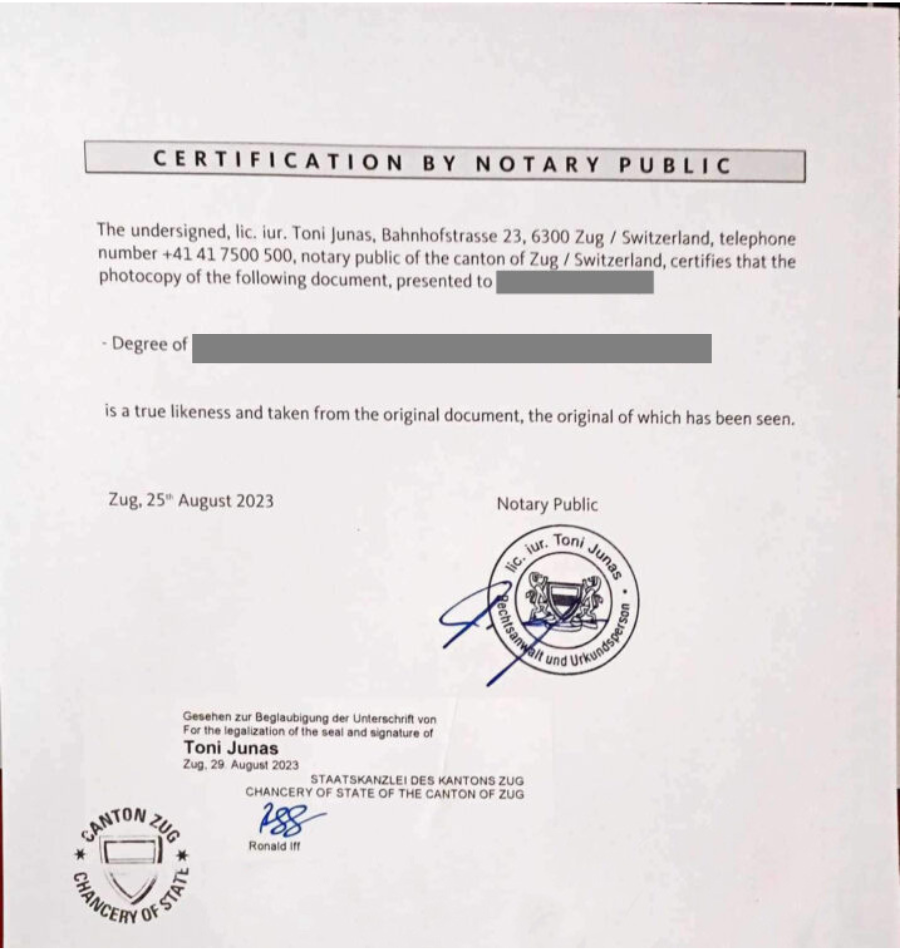
Note: The information provided above is accurate at the time of publication. However, the content is subject to change in accordance with adjustments to the laws of each country and may be updated without prior notice.
4. Accreditation & recognition of Qualifi
About the Ofqual UK.Gov awarding body Qualifi:
- Recognized as an organization by the educational authority of the United Kingdom, Ofqual (UK.Gov). Recognition Number: RN5160. Refer to the recognition information CLICK HERE
- Qualifi Level 3 Diploma in Business Management is accredited with the Ofqual UK.Gov code 603/1102/2. Refer to the accreditation information CLICK HERE
Reference:
- The meaning of Level System in the labor market in the context of global labor mobility: CLICK HERE
- The meaning of Level System in global diploma recognition: CLICK HERE
You will get
Dual Qualifications
06 Pro Recognized
Swiss Student Card
Academic Support
FAQs for Level 3 EQF
What is Level 3 EQF?
Level 3 of the European Qualifications Framework (EQF) represents qualifications for learners who have acquired knowledge, skills, and competencies allowing them to perform tasks under supervision. It's considered an intermediate level, typically aligned with high school education, vocational training, or entry-level employment skills.
Key characteristics of Level 3 EQF:
- Knowledge: Basic factual and theoretical knowledge in a specific field or work/study area.
- Skills: Range of cognitive and practical skills that allow solving routine tasks and procedures using basic methods, tools, materials, and information.
- Responsibility and Autonomy: Ability to take responsibility for completing tasks under direction and solve routine issues independently.
Level 3 qualifications are commonly used as a stepping stone for learners moving toward Level 4 (which often aligns with post-secondary or polytechnic training). These qualifications can vary by country but generally prepare learners for more specialized education or skilled work.
Awards, Certificates, and Diplomas at SIMI Swiss
At SIMI Swiss, we offer various levels of awards, certificates, and diplomas tailored to develop practical skills, knowledge, and understanding for employment. Each qualification is designed to meet specific career goals, with flexible options for direct entry into the workforce or continued study at higher levels.
Awards
Awards are concise programs that focus on essential skills and foundational knowledge. Available at various levels, they generally require 120 hours or less. Learners who complete an award may progress to a certificate or diploma program at a similar or higher level, depending on their professional aspirations.
Certificates
Certificates provide a broader learning experience than awards, with more in-depth study of a subject. These qualifications typically require 121 to 369 hours and are available across multiple levels. After earning a certificate, learners may choose to continue studying toward a diploma or pursue further higher education.
Diplomas
Diplomas are comprehensive programs that offer an extensive exploration of a subject, requiring 370 hours or more. Extended Diplomas, which involve at least 1,080 hours, allow learners to gain a deep and thorough understanding of their chosen field. Diplomas are available at different levels, making them suitable for both beginners and those looking to specialize.
Flexible Study Paths
SIMI Swiss provides flexible pathways for these qualifications, enabling learners to pursue them independently, in combination with other academic or vocational courses, or as part of structured programs like apprenticeships.
Qualification Size and Time Commitment
Each qualification follows the Regulated Qualifications Framework (RQF), with "Total Qualification Time" (TQT) guiding the estimated time needed to complete each course. TQT includes all aspects of study time, both with instructors and independently. One credit represents roughly 10 hours of study. For example, a qualification with 12 TQT credits would require approximately 120 hours to achieve.
Guided Learning Hours (GLH) are also used to specify time spent directly with instructors, which often affects program funding arrangements. This provides a clear expectation of the commitment required to succeed.
Understanding Qualification Titles and Duration
The titles of our programs—Award, Certificate, or Diploma—indicate the scope of study and approximate completion time:
- Award: 1-12 credits (10-120 hours of study)
- Example: Level 3 Award in Education and Training (12 credits, 120 hours)
- Certificate: 13-36 credits (130-360 hours of study)
- Example: Level 4 Certificate in Education and Training (36 credits, 360 hours)
- Diploma: 37 or more credits (370+ hours of study)
- Example: Level 5 Diploma in Teaching (120 credits, 1,200 hours)
These titles refer to the required study time, not the progression level, and allow learners to pursue awards, certificates, and diplomas at different levels within the same subject. This flexible approach helps meet varied career objectives and supports continuous professional growth.
Entry requirements of Level 3 Diploma from SIMI Swiss
To enrol in our Level 3 course, you must be at least 16 years old and have a full secondary education.
If you don’t have a full secondary education or the equivalent, you may also be able to enrol based on your work experience.
What is Level 3 EQF equivalent to?
Level 3 of the European Qualifications Framework (EQF) is roughly equivalent to qualifications typically associated with:
- High School Diploma or GCSEs (General Certificate of Secondary Education) in the UK. Specifically, it corresponds to the level achieved around the age of 16 after completing foundational education, but before specialized advanced studies.
- Secondary School Completion or Vocational Certificate in many European countries, marking the end of compulsory education or entry into a basic vocational or trade pathway.
- Entry-Level Vocational Qualification or Apprenticeship: In some systems, Level 3 is equivalent to early-stage vocational certificates or apprenticeships that qualify learners for semi-skilled positions.
- International Equivalent:
- USA: Roughly equivalent to a High School Diploma or some early vocational certificates.
- Australia: Comparable to Certificate III in the Australian Qualifications Framework (AQF).
- Canada: Comparable to completion of high school or vocational certificates, depending on the province.
It represents qualifications for learners who have acquired the skills and knowledge to perform tasks under supervision, suitable for entry-level positions and further vocational or academic progression.
Is the Level 3 Diploma from SIMI Swiss accredited and recognized?
All programs offered by SIMI Swiss are recognized by awarding bodies regulated by Ofqual UK.Gov, such as OTHM, Qualifi, and ATHE. For more information, please refer to HERE.
Level 3 Diploma programs offer dual certification, ensuring that both the programs and diplomas are recognized in most countries and territories.
It is important to note that each country has its own specific regulations regarding diploma recognition, in addition to general guidelines. Therefore, SIMI Swiss encourage students to verify recognition information independently to protect their interests, especially given the variations in educational systems across different countries.
Can-Do Competencies of Level 3 EQF
At Level 3 of the European Qualifications Framework (EQF), a learner’s "can do" abilities include the following competencies:
- Apply Basic Knowledge in Specific Contexts: Can use basic factual and theoretical knowledge in a chosen field of study or work to understand and complete tasks.
- Perform Routine Tasks with Some Independence: Can handle familiar tasks using set procedures and tools, often under supervision, but with some autonomy.
- Solve Routine Problems: Can address straightforward issues and make decisions within clearly defined parameters, applying basic problem-solving techniques.
- Use Standard Tools and Methods: Able to work with standard tools, techniques, and materials to accomplish tasks, following established practices.
- Communicate Clearly and Effectively: Can communicate factual information clearly, relay instructions, and interact with colleagues or team members to carry out tasks.
- Take Responsibility for Completing Tasks: Can take responsibility for routine tasks within a structured framework and demonstrate reliability in completing assignments on time.
- Work in a Team Environment: Capable of working effectively as part of a team, understanding roles, and cooperating with others under guidance.
- Adapt to Minor Changes in Work Processes: Can adjust to small changes in procedures or tasks and can continue work with some guidance in new situations.
These competencies make a Level 3 learner suitable for entry-level roles where routine procedures are followed and prepare them for further learning or training at higher EQF levels.
Level 3 EQF Progression Pathways
The progression from Level 3 of the European Qualifications Framework (EQF) typically involves moving towards higher levels of education or training to gain more advanced skills, knowledge, and autonomy. Here’s an outline of the typical progression pathways from Level 3 EQF:
1. Move to Level 4 EQF:
- Learners can progress to Level 4 qualifications, which often involve more in-depth theoretical knowledge and skills. At this level, learners gain more responsibility and autonomy and are prepared to handle complex tasks with less supervision. Level 4 qualifications are often aligned with post-secondary education, advanced vocational training, or specialized certifications.
2. Further Vocational Training:
- Many learners use Level 3 as a foundation for further vocational training, where they gain specialized skills in trades or technical fields. This can lead to industry-recognized certifications or apprenticeships at Level 4, equipping them for roles requiring a higher level of skill.
3. Entry into the Workforce:
- Level 3 prepares learners for entry-level roles, often in semi-skilled positions. After gaining some work experience, learners may advance within their field or pursue additional training and certifications to improve their qualifications.
4. Apprenticeships and Traineeships:
- Level 3 qualifications often serve as a prerequisite for apprenticeships or traineeships in various fields, offering practical experience while learners continue to study and acquire skills at higher levels.
5. Transition to Specialized Programs:
- Depending on the field, learners might transition to specific programs that require a Level 3 qualification as a starting point. This could include areas like healthcare support, technical trades, or administrative work.
6. Lifelong Learning and Upskilling:
- Learners may also choose to engage in lifelong learning opportunities, taking additional courses to build on their Level 3 knowledge and broaden their skills, allowing for career flexibility and advancement.
The progression options from Level 3 EQF are designed to allow flexibility, enabling learners to tailor their educational and career pathways based on individual goals and regional education frameworks.
How to Transition from a Level 3 Diploma to a Bachelor’s Program?
Transitioning from a Level 3 diploma to a bachelor’s program often requires completing additional steps to bridge the academic gap. Here are common pathways to help students move from Level 3 to undergraduate studies:
1. Enroll in a Foundation or Access Program:
- Many universities offer foundation or access programs specifically designed for students who do not meet the direct entry requirements for a bachelor’s degree. These programs typically last one year and focus on essential academic skills and subject knowledge to prepare for degree-level study.
2. Pursue a Level 4 Qualification:
- Level 4 qualifications, such as a higher certificate, diploma, or other vocational qualifications, help build on Level 3 knowledge and skills. By completing a Level 4 qualification, students align more closely with the entry requirements of bachelor’s programs and may sometimes receive credits toward the degree.
3. Take a Bridging Course:
- Some universities provide bridging courses that cover specific subjects or skills required for a bachelor’s program. These courses are often shorter than a foundation program and target key areas needed to prepare for undergraduate studies in a chosen field.
4. Apply for a Vocational Pathway Program:
- Certain education systems offer vocational pathway programs where students progress from Level 3 to bachelor’s-level qualifications through structured vocational training. These pathways often include a mix of practical experience and academic coursework, leading to eligibility for a bachelor’s program.
5. Use Recognition of Prior Learning (RPL):
- For students with work experience or relevant learning outside of formal education, Recognition of Prior Learning (RPL) can be an option. RPL assesses prior skills and knowledge to determine if they meet bachelor’s program entry requirements. RPL may lead to credits or partial fulfillment of admission requirements.
6. Choose a University that Offers Flexible Entry Options:
- Some universities have flexible entry requirements and may consider applicants with Level 3 qualifications based on other factors like work experience, personal statements, and entrance exams. This approach varies by institution and may require additional evaluations.
Key Steps in the Transition Process:
- Research Entry Requirements: Look into specific bachelor’s programs to understand their entry requirements and whether they offer foundation, bridging, or RPL options.
- Seek Guidance from Admissions Advisors: Most universities have admissions advisors who can help clarify pathways and guide applicants through foundation or vocational programs.
- Plan for Additional Study Time: Foundation and bridging programs may add an extra year to the study plan, so it’s essential to plan accordingly.
In summary, while a Level 3 diploma alone doesn’t usually meet bachelor’s entry standards, foundation programs, Level 4 qualifications, bridging courses, vocational pathways, or Recognition of Prior Learning can help students transition smoothly into undergraduate studies.
All Pre-University Programs
Fully Accredited
Multi Recognition
Level 3 PreU Diploma in Accountancy
Powered by BizSchool of Zug
Level 3 PreU Diploma in Business Management
Powered by BizSchool of Zug
Level 3 Integrated Diploma in Business Management (120 Credits)
Powered by BizSchool of Zug
Level 3 PreU Diploma in Employability and Workplace Skills
Powered by BizSchool of Zug
Level 3 PreU Diploma in Engineering
Powered by BizSchool of Zug
Level 3 PreU Diploma in Introduction to Management Diploma
Powered by BizSchool of Zug
Level 3 PreU Diploma in People and Organisations
Powered by BizSchool of Zug
Level 3 PreU Diploma in Information Technology
Powered by IT Institute of Switzerland
